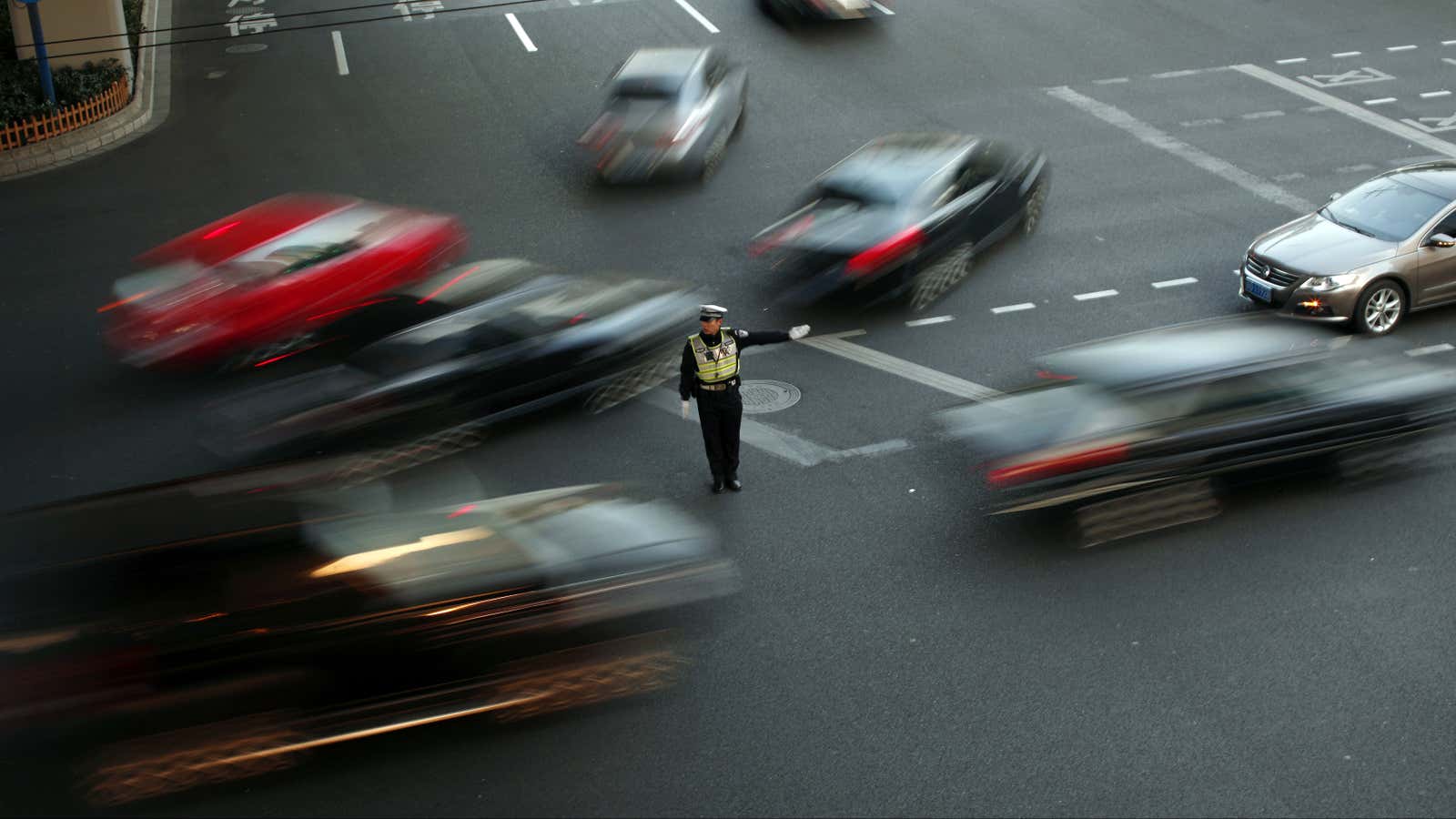Didi Kuaidi, China’s answer to Uber, is letting users hail a ride—minus the car.
The company introduced Didi Chauffeur (or Didi Daijia in Chinese) on July 28, a service that lets users summon temporary personal drivers. Car owners who find themselves physically unable to drive can tap one of Didi Kuaidi’s apps, and a driver will head to the person’s location and hop in their car.
The most obvious use for the service is to provide designated drivers after a night out drinking. Plenty of people sing Uber’s praises when it comes to getting home safely whilst tipsy. But if you take your own car to the bar and ride an Uber back home, you still have to trek back the next day to pick up your car (and you’ll probably be hungover).
Didi Kuaidi says that designated drivers may opt to take public transportation to get back home, or bring a folding bike along. The company might provide shuttle buses for chauffeurs when demand is high. Or they could hitch a ride back using one of Didi’s other Uber-esque services—like Didi Dache, which provides taxi rides.
On-demand designated drivers isn’t a new idea. A slew of startups have emerged in the US recently. Some of them earn money through memberships, while others charge by logged distance. Few of these companies have achieved meaningful scale, though some have raised small rounds of funding. But the situation is different in China—Edaijia, a startup that also offers designated drivers on demand, raised US$100M from private investors (link in Chinese) back in May. If that’s a sign of market validation, Didi’s network of 200 million users might help to take the concept even bigger.
There’s plenty of potential customers. Between 2011 and 2014, China logged in 1.3 million reported cases of drinking while driving, according to a Ministry of Transport report cited by China Daily.
Didi Chauffeur is currently available in ten cities across China. Pricing will vary according to demand, but fares will be determined by a 10 kilometer base fare and an additional charge for each additional kilometer.
Didi is rapidly expanding, and its services rival those offered by Uber in China. The company got off the ground with Didi Dache and Kuaidi Dache, two taxi-centric apps that merged earlier this year, forming a company valued at an estimated $6 billion.
Since that deal, it has branched out with Didi Zhuanche, a high-end service akin to Uber’s UberBlack, as well as Didi Shunfengche, a peer-to-peer model akin to Uber’s UberX, in which ordinary people act as drivers and Didi takes no commission. The company also launched shuttle bus lines, and will soon introduce a carpooling service.
